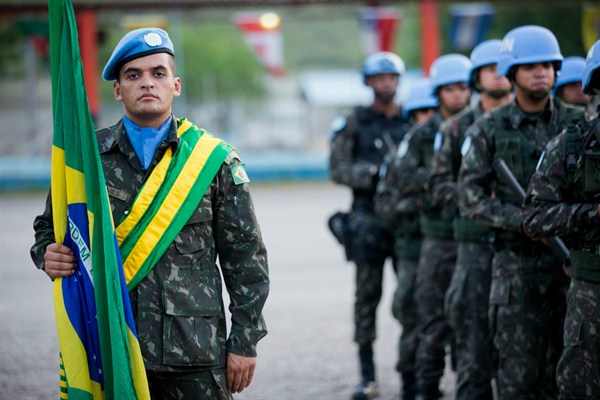In late November, the United Nations undersecretary-general for peacekeeping operations, Jean-Pierre La Croix, asked Brazil to contribute troops to the U.N. mission in the Central African Republic. This week, Brazil reportedly agreed to that request. Though it has traditionally eschewed military interventionism, Brazil has assumed an increasingly prominent role in peacekeeping missions in recent years. In an email interview, Kai Michael Kenkel, an associate professor at the Institute of International Relations at the Pontifical Catholic University of Rio de Janeiro, discusses Brazil’s engagement in peacekeeping operations and how this plays politically at home.
WPR: What is the recent history of Brazil’s involvement in U.N. peacekeeping missions, and has this involvement been seen as successful?
Kai Michael Kenkel: By way of background, before Brazil became involved in the United Nations Stabilization Mission in Haiti, or MINUSTAH, in 2004, with few exceptions the country would mostly send what scholar Katharina Coleman has aptly dubbed “token contributions” to U.N. peacekeeping operations. These generally consisted of individual liaison officers and a handful of military observers—in short, very small contributions that allowed Brazil to say it was involved in missions. The most notable exception was its involvement in the United Nations Emergency Force in Egypt’s Sinai between 1956 and 1967.

